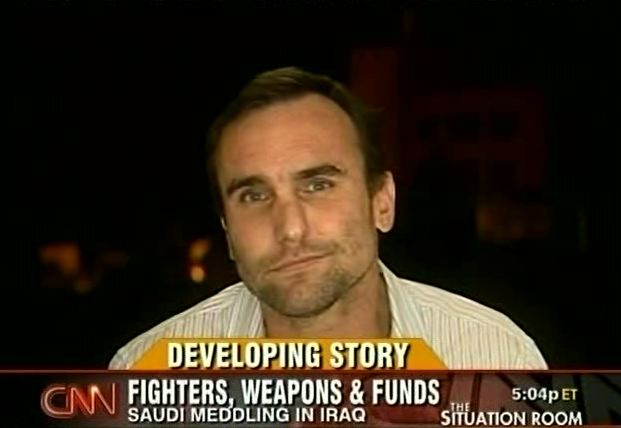TSR: " "You'll fix one problem and create five more.' "

Click photo to play
Length: 3:42
WOLF BLITZER: Is a close U.S. friend backing America's foes in Iraq?
Dozens of foreign fighters crossing into Iraq each month and the U.S. military estimates half are from Saudi Arabia. Almost half the foreigners in U.S. detention facilities are said to be Saudis, as well. Along with that, a flow of funds from individuals in Saudi Arabia to Sunni insurgent groups.
The State Department says the Saudi government is doing what it can to stop the flow of young men going from Saudi Arabia into Iraq who are "bent on blowing themselves up or blowing others up."
Secretary of State Condoleezza Rice and Defense Secretary Robert Gates will raise the sensitive issue in a visit to Saudi Arabia next week.
And joining us now, our correspondent in Baghdad, Michael Ware -- Michael, the Saudis and their involvement in what's going on causing some consternation here in Washington. Saudi Arabia, a largely Sunni Muslim country. They're not very happy with the Shiite-dominated government in Baghdad.
What are you seeing on the ground?
MICHAEL WARE, CNN CORRESPONDENT: Well, what we're seeing, Wolf, is that, you know, Saudi Arabia, is experiencing just as much consternation with this U.S. experiment here in Iraq.
Now, they said before the war that it wasn't going to work. Indeed, I think the quote, from memory, was something like, "you'll fix one problem" -- being Saddam -- "and create five more."
And then, as they saw the American expedition unfold, they saw it fall to pieces. Now, at first, they started whispering about it. Then they started screaming about it. And for a long time now -- we're talking years -- they've been acting on that.
They've been providing funds to Sunni sheikhs and tribal groups. There's been some connection with the insurgency. They're funding political opponents of this Maliki government, a government they don't trust.
And that's a sentiment shared by most of the Arab world. It's seen as either an Iranian proxy or so beholden to Iran -- this government -- that it cannot function as a truly independent entity.
The Saudis see that the American endeavor here in Iraq is not protecting legitimate Saudi national interests, let alone furthering them. They're seeing that this war is destabilizing the whole region, to the disadvantage of America's allies.
BLITZER: And, Michael, do the Saudis see the prime minister, Nuri al-Maliki, as nothing more than an Iranian agent?
Because that's the word they're spreading, according to the "New York Times".
WARE: Yes, well, I mean, obviously, I can't speak for the government in Riyadh from here in Baghdad. But what I can tell you is that the Arab world doesn't trust Prime Minister Nuri al-Maliki, nor this government.
I mean this is not really a government. I mean, there's no water for people in the capital right now. Electricity, if you get it at all, is down to about an hour a day. And to fill up your car with gas, you've got to queue for anything from five to 12 hours, or even overnight. So this government isn't delivering services.
This government is a loose coalition of militia, most of them backed or supported, in one way or another, by Iran.
And we wonder why America's Arab allies are nervous at what they see as an expansion of Iranian influence?
We're hearing that they're allowing insurgent commanders and political leaders to gather in Jordan, in Syria and, indeed, even in Saudi Arabia. Just expect this to pick up rather than deescalate -- Wolf.
BLITZER: All right, Michael, thanks very much.
Michael Ware is our reporter in Baghdad.
